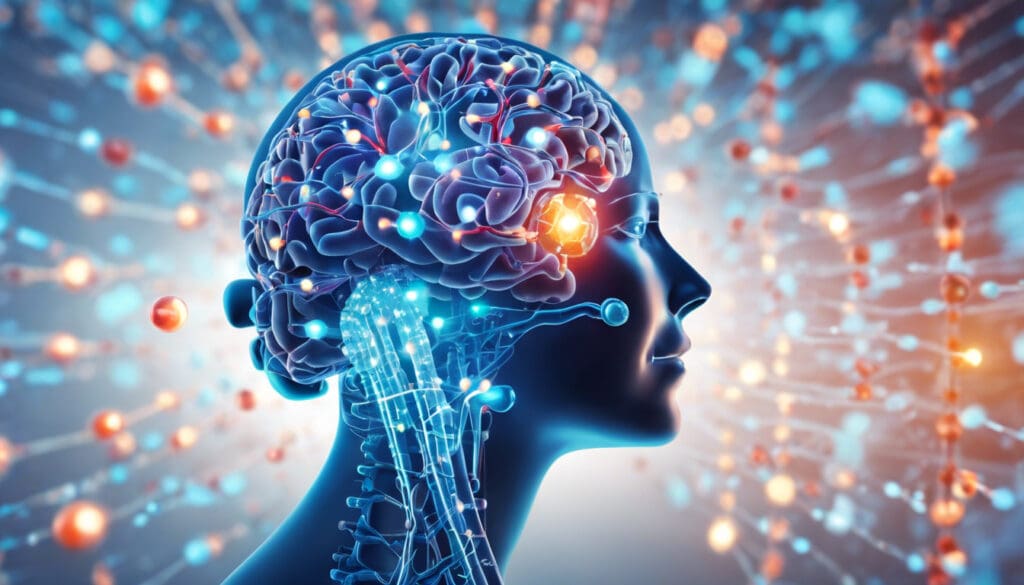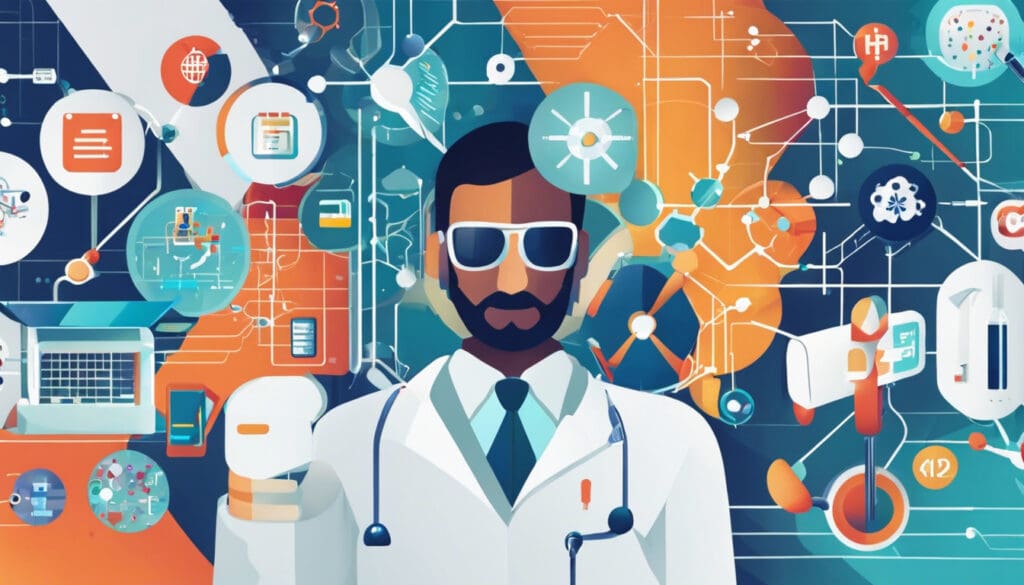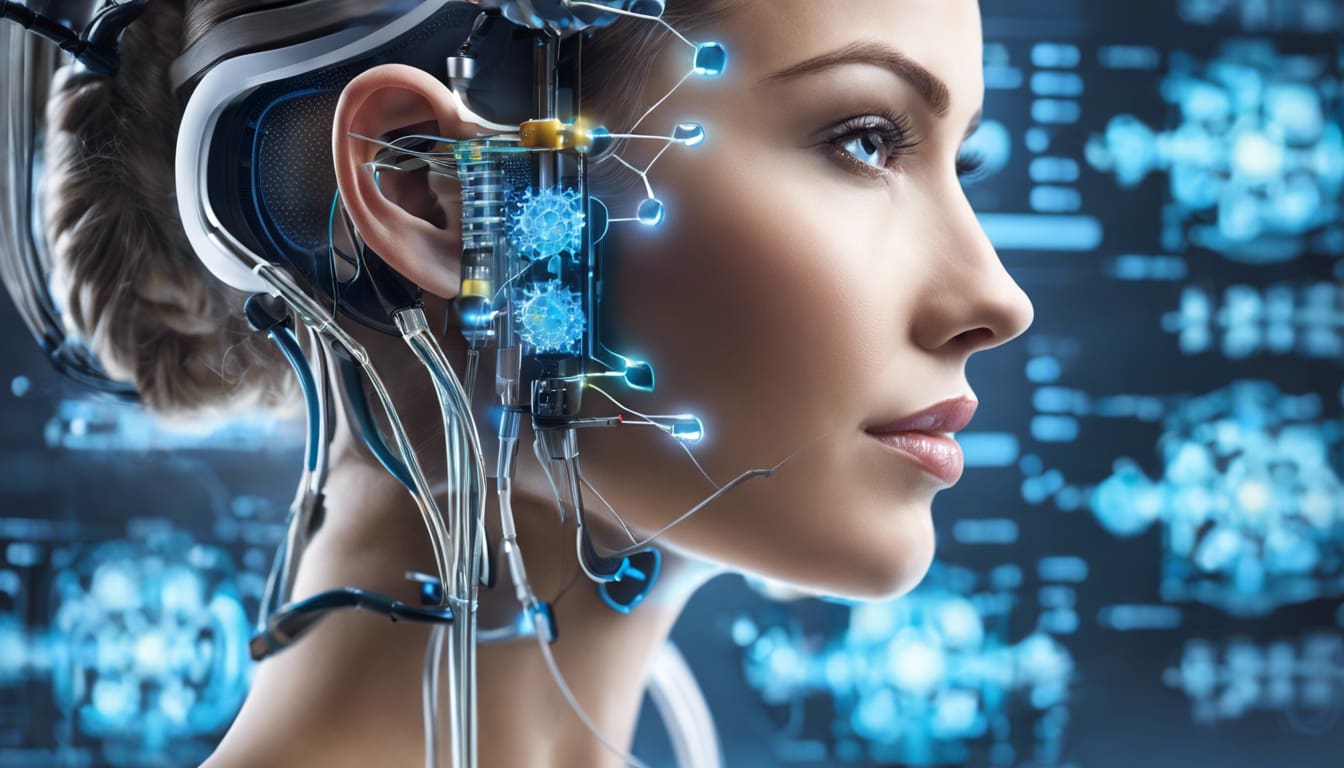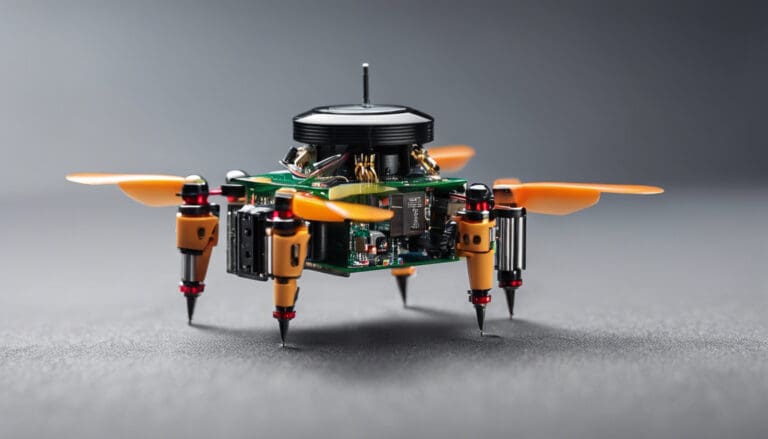Precision Medicine: How AI Personalizes Treatment Uniquely
Have you ever noticed that some medicines work well for some people but not for others? The key to this mystery is precision medicine. This innovative approach uses cutting-edge technology to create treatments that meet the unique needs of each person. Recent studies have found that precision medicine has improved the success rate of certain cancer treatments by 30%. This sparks interest and highlights the vital role of personalized healthcare in our lives.
This article will explore how artificial intelligence (AI) is making personalized healthcare more efficient by reducing side effects and making treatments more effective. AI’s quick analysis of vast genetic data brings in a new era of medicine that’s customized for an individual’s genetic background.
Understanding how AI is making healthcare more personalized can change your perspective on treatment options for different diseases. Let’s dive into how this is happening.
In the article
The Basics of Precision Medicine
What is Precision Medicine?
Precision medicine is a groundbreaking approach to healthcare. Instead of the traditional one-size-fits-all treatment, precision medicine customizes treatment and prevention plans based on a person’s genes, lifestyle, and environment. This method uses modern science and technology, like analyzing genomic data, to deliver personalized healthcare solutions.
Precision medicine aims to make healthcare more efficient, effective, and safe by focusing on the person rather than the disease. By combining genomic data and personalized treatment plans, patients receive treatments that are more likely to be successful for their specific conditions. This reduces the often trial-and-error method of standard treatments.
The success of this approach depends on using biomarkers and genetic information to direct treatment choices. This helps healthcare providers better understand the complex relationship between genetics, environment, and disease, ensuring that patients get the most suitable treatments.
The Role of Personalized Healthcare
At the core of precision medicine is personalized healthcare, marking a big change in the way we think about and deliver medical treatments. It acknowledges that each person’s health condition is unique and requires specific care. Personalized healthcare doesn’t just aim to treat diseases but also to predict and prevent them.
Approaches like AI-driven drug discovery and genomic data analysis AI play a crucial role in creating personalized treatment plans. These techniques help detect diseases early and identify potential health risks, leading to effective and efficient preventive care.
Moving to personalized healthcare requires strong collaboration across many health disciplines, making use of big data in personalized healthcare and AI in medical research innovations. It’s a comprehensive strategy that combines technology, data analysis, and individualized care to change the healthcare industry fundamentally.

How AI is Transforming Precision Medicine
Analyzing Genomic Data with AI
AI in genetic sequencing has changed our understanding of human biology. By quickly analyzing large amounts of genomic data, AI algorithms can find genetic markers linked to specific diseases. This is crucial for precision diagnostics with AI, aiming to create treatment plans that accurately address an individual’s genetic risk.
Additionally, machine learning in diagnostics has led to predictive models that can estimate an individual’s risk of developing certain conditions. This capability is vital for taking early preventive or treatment actions.
AI also plays a significant role in AI-driven drug discovery, making it faster to find potential therapeutic compounds. This not only speeds up the creation of new drugs but also improves the precision of treatments for patients.
Identifying Biomarkers for Precise Treatments
The rise of healthcare AI biomarker identification has been a turning point for precision medicine. AI technologies like deep learning can now sift through medical records, imaging data, and genetic information to find biomarkers that indicate disease or predict drug response. This accuracy is key in developing targeted therapies.
AI’s role in AI in patient data analysis also includes real-time monitoring of how patients respond to treatment. This helps tailor therapies based on a patient’s progress, moving personalized care forward.
With AI enhancing precision medicine, healthcare providers can now more accurately predict the most effective treatments for a patient, greatly improving the quality and outcomes of patient care.

Real-World Applications of AI in Precision Medicine
Customizing Cancer Treatments
The use of AI and precision oncology is starting to personalize cancer therapy. By identifying genetic mutations unique to an individual’s cancer, AI algorithms can recommend the best treatment options, from chemotherapy to targeted gene therapy. This approach boosts chances of success and lessens side effect risks.
With AI for disease prediction, doctors can also predict treatment resistance and adjust plans accordingly. This ensures patients receive the best possible care throughout their illness.
The use of deep learning in medical imaging improves the diagnosis and monitoring of cancer. This precise insight aids in making more informed treatment decisions, leading to personalized cancer therapy.
Personalizing Diabetes Management Plans
Diabetes management has greatly benefited from precision medicine and AI. Analyzing genetic data and lifestyle factors, AI models can create personalized diabetes management plans that are simpler for patients to stick to.
AI tools also track data from wearable devices, offering real-time, personalized advice on diet, exercise, and medication. This improves blood sugar management and reduces the risk of diabetes complications.
AI can even predict the onset of diabetes complications, leading to early intervention and better patient outcomes.

The Future of Precision Medicine and AI
Challenges and Opportunities
While AI’s integration into precision medicine is very promising, there are challenges, such as data privacy issues, the need for diverse training datasets, and the risk of bias. Nonetheless, the opportunity to improve patient outcomes and healthcare efficiency is significant.
Advances in blockchain in precision medicine and data security address these challenges, making the broader use of AI in healthcare possible.
On the opportunity side, AI’s ability to customize treatments, reduce healthcare costs, and enhance the quality of life is unmatched. The challenge is to use technology while protecting patient rights and privacy.
Predicted Advances in the Next Decade
The coming decade will see significant advancements in precision medicine AI. Predictive analytics and machine learning will play a bigger role in creating personalized treatment plans, while AI for health outcome prediction will improve preventive care.
Moreover, the merging of genomics-based personalized care with AI is expected to lead to new treatments for rare diseases, better drug discovery, and more efficient trials. This will not only speed up medical research but also make the benefits of precision medicine accessible to more people.
As technology evolves, AI will continue to transform healthcare. Precision medicine AI startups are leading some of these changes, showing the importance of continued investment and research in this area.

Embrace the Future of Personalized Healthcare
In conclusion, by using AI for tailored treatments, we’re venturing into an era of healthcare that benefits everyone. This approach uses unique health indicators, like biomarkers and genomic data, to create perfectly fitting healthcare solutions. Not only does this have the potential to save lives by providing more effective treatments, but it also hints at the future of healthcare.
Now is the time to actively engage with your healthcare provider about these AI-driven treatments for you or your loved ones. Sharing this article with friends and family can also spread awareness about the benefits of personalized healthcare. The future is here, and it’s highly personalized.







